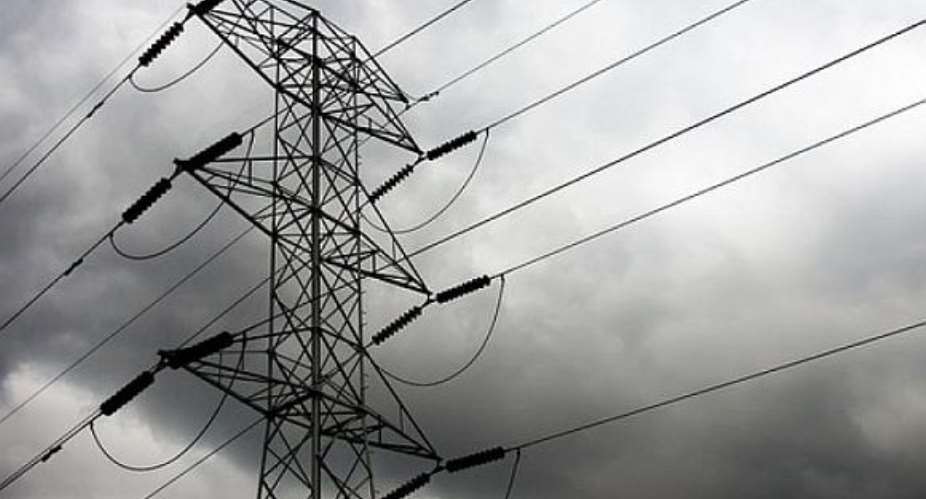A Friedrich-Ebert-Stiftung Foundation report on climate change and food security authored by Dr. Anna Antwi notes that Africa accounts for only 3.6 percent of global carbon dioxide emissions yet the continent is at a greater risk of the negative impacts of extreme weather conditions, due to its peculiar vulnerabilities.
In Africa, the agricultural sector is the safety net for the rural poor, accounting for 70% employment, 30% of GDP and 50% of exports. Therefore, the report said the increased frequency and intensity of extreme weather conditions is leading to drought and floods in many parts, such as the countries around the Rift Valley, Plains of Mozambique, Senegal and the Gambia.
Other factors accounting for the vulnerability of African countries according to the report were:
•Disappearing water bodies, as a result of many factors like pollution, population pressure, evaporation due to deforestation and high temperatures, and inadequate rainfall or variability in precipitation as a result of climate variability and change.
• Rising sea levels affecting the fish numbers and eroding the coastal areas and displacing coastal communities.
• Energy use – land grabbing, and biofuel production could have negative consequences for food security if not well managed and the displacement of rural communities of their land and incomes. In some areas, this has led to conflicts.
• Poor economic and social infrastructure.
• Poverty (low per capita GDP, life expectancy; and high infant mortality, hunger, illiteracy rate). Africa also has higher number of Least Developed Countries
• Increasing disaster risk of climate change in a number of sectors that provide livelihoods to the people
•Conflicts caused by climate, social, economic and political unrest
• Existing stresses on health and well being (e.g., HIV/AIDS, illiteracy)
• Migration (youth) and rapid urbanisation: rapid migration to cities without jobs and facilities to cater for the large numbers
• Weak institutional & low adaptive capacity (weak institutional framework: policy development & its implementation, leadership and management, limited human, technological and financial capacities).Furthermore, the report noted that people who largely depend on natural resources for their very existence and livelihoods like small-scale farmers, forest dependent people and fishers are the most hit of climate change.
• Giving reasons for such a phenomenon, the report noted that climate change affects the suitability of diverse crops, animals and pasture, and impact on the productivity and health of land, forest and water bodies.
• It also noted that areas such as the arid and semi-arid regions in Africa are the most vulnerable areas of climate change because of multiple stresses and low adaptive capacity.
• This vulnerability, the report concluded, is due to several factors such as over-exploitation of natural resources, widespread poverty, poor infrastructure, high illiteracy rates, conflicts, and dependence of a large share of its economies on climate-sensitive sectors, mainly rain-fed agriculture.





 Meta releases new version of conversational AI across its platforms
Meta releases new version of conversational AI across its platforms
 Cape Town named Africa’s Best Airport 2024 by Skytrax
Cape Town named Africa’s Best Airport 2024 by Skytrax
 Bono East: Four injured after hearse transporting corpse crashes into a truck
Bono East: Four injured after hearse transporting corpse crashes into a truck
 ‘Be courageous, find your voice to defend our democracy’ — Sam Jonah urges journ...
‘Be courageous, find your voice to defend our democracy’ — Sam Jonah urges journ...
 Exodus of doctors, nurses and teachers have worsened because of unserious Akufo-...
Exodus of doctors, nurses and teachers have worsened because of unserious Akufo-...
 2024 election: Avoid insults, cutting down people in search of power – National ...
2024 election: Avoid insults, cutting down people in search of power – National ...
 ‘You passed through the back door but congratulations’ — Atubiga on Prof Jane Na...
‘You passed through the back door but congratulations’ — Atubiga on Prof Jane Na...
 Government’s $21.1 billion added to the stock of public debt has been spent judi...
Government’s $21.1 billion added to the stock of public debt has been spent judi...
 Akufo-Addo will soon relocate Mahama’s Ridge Hospital to Kumasi for recommission...
Akufo-Addo will soon relocate Mahama’s Ridge Hospital to Kumasi for recommission...
 We must not compromise on our defence of national interest; this is the time to ...
We must not compromise on our defence of national interest; this is the time to ...
